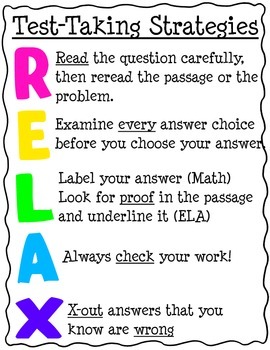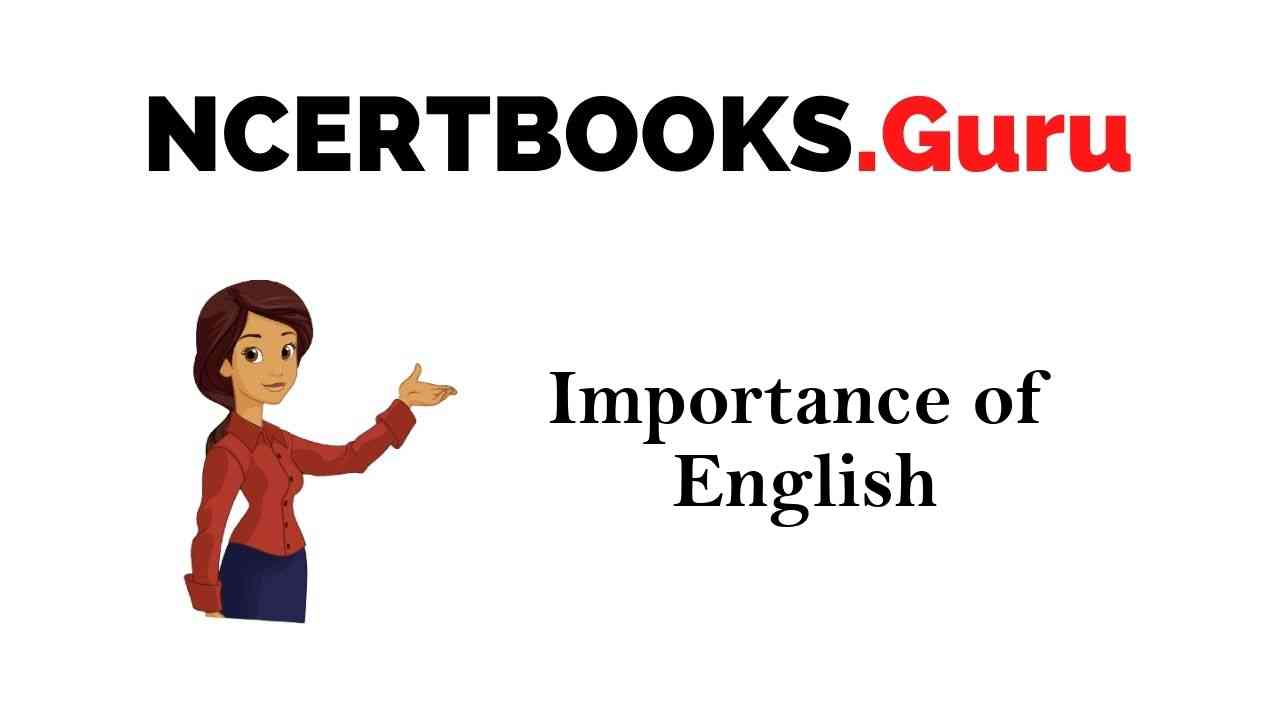The English language plays a necessary role in our lives as it helps in communication. It is the primary language for studying any subject all over the world. English is vital for students as it broadens their minds, develops emotional skills, improves the quality of life by providing job opportunities.
Moreover, the use of English as an international language is growing with time because it is the only medium for communication in many countries. English is also used widely in the literature and media section to publish books. Most of the writers write in the English language due to the vast majority of the reader. It is also considered as an important language since it has been used for communication worldwide.
Therefore, learning English is very common in many countries and language learning styles, especially reading techniques, are learned differently by students in globalisation. Learning styles are the core factor that helps decide how students learn a foreign language.
Gather Information Regarding Basic English Skills and become proficient in the language and speak fluently with confidence. Try the Tips over here and Improve your English Writing and Speaking Skills.
Why Did English Become so Significant?
English is one of the most practised languages in the world. Even outside countries like the US and UK, many people speak and understand English. If you include people who speak English as a secondary language, it comes to an estimation of over 1 billion people worldwide. On top of this, sixty-seven countries have English as the official language, and there are twenty-seven countries that have English as the secondary official language.
Why is this the case? All of it has to do with history, and the key is the British Empire. Throughout centuries, the British Empire expanded and dictated over many several countries, including most of the ones just mentioned and many more. In many cases, the British demanded the people they ruled over to speak in English, and that is why some of these countries still speak English, even if it is not their primary language.
For instance, people living in Ireland know English but barely speak the original language, which is Gaelic. Why is that? It is because Britain ruled over Ireland for hundreds of years. English may have a difficult past, but it has a bright future. Because so many people can speak in the language, it connects us in a global world. It can also help you in your private and professional life.
Reasons to learn the language
1. Learning English can make you smarter
One of the most significant gains of learning a new language such as English helps your brain function in a new and better way. Research confirms that learning a new language changes your brain structure in the right way, and impacts the parts of your brain that are responsible for memory, conscious thought and more. Solely learning a new language can make your brain more active and more versatile, improving the way you think.
Studies have also shown that bilingualism can keep your brain strong and healthy into old age, and help with memory, concentration and other skills. If you learn English, you could understand a book in English, take a class in English or do all kinds of other things. This will open pathways to many different experiences, make you feel smarter and help you learn new things.
2. English is the language of the internet.
English is the most used language online; nearly 1 billion users typing and chatting in the language. If you can follow and read English, you will be able to enjoy many more online resources. You can read online news reports or can leave remarks on an English video. You can understand posts from English speaking celebrities. You can participate in a debate on a forum. The possibilities have no bound.
Obviously, it is helpful if you are just using the internet to browse and have a good time. But many people and corporations also need to administer research, communicate or Market themselves and develop connections online. Email is also now a smart way to talk with people all over the world. Email is a primary way for many companies to communicate with customers or other businesses. Be able to write emails or other correspondence in English is another important asset for employers.
Most of the content presented on the internet is in English. So understanding English will allow you access to an incredible amount of data which may not be available in any other way.
3. English is a flexible language
Non-native English speakers who learn it as a second language often comment on how many ways there are to say different things. That’s because English doesn’t discriminate, you can use in whatever way you like. Countries like Singapore have adopted this concept by inventing an entirely new type of English called ‘Singlish’ that has included facets of other languages like Chinese and Malay.
4. International affairs
Foreign policies are the focus of attention of all countries of the world. The whole world expects to quench its thirst for peace with international guidelines. Every country wants to be friendly with each other, and explain their point of view to others when required. This cannot be done without a suitable medium for the exchange of ideas. English provides us with such a medium. This is the language which holds the status of an international language.
In the UNO, discussions are carried on in the English language, and the majority of the countries conduct their business in it. If a government wants to play its role in international matters effectively, its people must study the English language.
5. Importance of English in internal matters
In some countries, like India, people living in different parts have their own languages, English plays an important role. The regional languages are considerably different from one another. Every few kilometres in India changes the language drastically. The leaders and administrators of the country cannot remain in contact with all these regions without a common language. It is not possible for everyone to not ten or fourteen languages. Search countries don’t have any other common language at present, so English is the only way.
During the English rule, everyone tried to learn this language. English is the language best needed for maintaining internal unity and is an essential means of national integration. Therefore, one must study English.
6. English makes your life entertaining
Have you ever wanted to increase the number of books in your bookshelf? or ever needed more options for a movie night? Learning English will open a whole new world of entertainment for you. You won’t need to rely on translation and will be able to enjoy authentic originals. Understand me English means you will get to enjoy modern films as well as classic films from different generations.
The English film industry is a powerhouse of global entertainment, so, naturally, English would become one of the main languages for movie making. Sure, the movies can be dubbed or subtitled, but they are the best enjoyed in the language in which they were intended.
7. The expression of academia
English is also necessary for the profession of education. In many countries, children are guided and encouraged to learn English as a second language. Even in nations where it is not an official language, like the Netherlands for Sweden, it is found that most of the textbooks of Science and Engineering are written in English. Furthermore, English is generally taught to be the language of Higher Education.
- English in higher studies: For proper mental development, we must study the best literature. If you want to shed the feeling of false superiority or broaden your minds, we must be ready to take the best from others. The literature of other countries and different languages can easily be obtained in English. In your native language, modern and up to date literature may not be available, so this gives you a reason why you should continue to learn English. Moreover, many individuals go to foreign countries for advanced studies, and for that, they need to have a good knowledge of English. This language’s importance for such scholars is indeed very significant.
Many of the world’s top universities are English speaking institutions. Because English is a prevailing language in the field of science and international research, most of the research studies available are written in it. At the university level, learners in many countries study almost all the subjects in English in order to make materials more accessible to international students.
- English as a medium of teaching: English, as a means of education, is an increasingly popular standard. Educational institutions may prefer to use the English language to teach at any given subject, sometimes because it is commonly spoken in that geographic region. It can also be that the institution seeks to attract a population of students who believe that conducting the studies in English makes them more employable in the world.
There is some contention about whether English as a medium of instruction is beneficial to the whole. While it is true that studying in English can be highly sought after and employable skills, somebody that using English in academic and settle local languages or erase the learner’s identity.
Moreover, if teachers and students are and all personally invested in using English, the quality of learning can be diminished. Its effectiveness can also suffer if teacher and student aren’t fluent in the language, as that impact critical learning.
- English test can get you into an institution: If you learn English well adequate to pass college or school entrance exams, you can study in English language universities across the globe. This is an excellent opportunity if you want to move to an English speaking region or work in one. A successful English entrance examination will show the colleges and Universities that you are ready and fit.
Even if you don’t need to take the test for a specific reason, have already graduated from college, studying for an English test can still really help you improve your language skills. It will teach you the essential skills needed to communicate in English, and if you end up passing the test, it means your English is powerful.
8. Helps you say things in different ways
English’s best asset is its flexibility. You can often find many different ways to explain the same thing. This is because of its wide range of vocabulary. It is said to have over one million words and is adding new words every year.
9. Importance of English for getting a job
Proper language knowledge is super essential for getting a job. You probably know that, and here you will see the reason behind it.
If you have started learning English, then you are probably doing it because you wanted to help you. But it may turn out that learning English is only the first step. Language barriers can also be a hindrance to your career. So, If you really want to get ahead, you need to be able to speak it efficiently, with as little of an accent as possible.
The common language of business
For years now, English has been taught as the Global language of business.
This means that more and more international companies are using English as a common language to communicate. This is true even for big companies that did not start in English speaking place, for instance, Nokia.
To succeed in the business career, you are going to have to learn English fluently. Being bilingual is impressive, but only if the company thinks it can put your language skills into fair use. If you want to be able to negotiate with other companies, knowing English is pretty much a must. You are going to have to find a common language, and English is the most likely one to be.
Understanding English will put more information at your fingertips
On the internet, the importance of English as a language is most apparent. Most of the content online is in English, and because of this, if you weren’t able to read English easily, you are cutting yourself off from a lot of really informative context. When you are in business, it is essential to be up to date on the latest news and trends in your industry. You need to be the first person to know things so you can use that knowledge for your benefit.
Not knowing proper English, would mean you will have to wait for things to get translated. Most translation app and sites can sometimes pull out necessary information from original texts, making it wildly inaccurate. It is much more useful to learn the language yourself so that you can read with ease. That way, you get the information first hand, and you know that it is good.
Accents can affect job opportunities
If you have learnt English, but still have a hard time getting a job, it might be because of your accent. In general, people don’t want to prejudge against you because of your accent. It isn’t a conscious thing. But unless we are always trying not to do it, they’ll make assumptions.
People with dialects are often seen as ” politically weak”. This is a skill that is incredibly important for executive jobs and things of that nature. For this reason, a lot of people with accents find it challenging to move up The corporate ladder. Being able to show people is just as important as being competent. If you want to job, you need to be able to show up the people hiring you your absolute best.
Miscommunication during work
Miscommunication can be damaging to a lot of careers. Sometimes, it can even cost a lot of money. The importance of English is that if you speak fluently, it helps you avoid miscommunication. When you are trying to talk in a language other than your first one, there is a chance of miscommunication. There are a lot of phrases and short forms that can be easily ill-treated.
If you have an unusually thick accent, it is also likely that you will be less understood because of that. It can make people mishear you and think you said one thing when you actually said something else. When you are misunderstood, it can have an incredibly damaging effect on your reputation. You will quickly be viewed as someone who cannot communicate effectively, and that people see you like that, it will be tough to be taken seriously at your job.
It is possible that the rising quality of computerised translations makes comprehending English less necessary when communicating globally. Even though most web sites are in English, many can be translated. Many videos have subtitles in multiple languages and applications on your smartphone can help you have a conversation with others. However, there is a very high chance of incorrect translation that can cause chaos.
10. Learning English to travel
If you love to travel, then you may have noticed the big difference knowing a specific language can make to the experiences you have. Travelling is an excellent way to develop your language coaching experience. Nevertheless, it depends on the language you are acquiring and the country you are visiting. Hence, we believe that it is beneficial to learn English before travelling, as it helps you in most countries.
English is the most extensively spoken language in the world. The chance of meeting someone who has a stable command of spoken English in any country you visit is comparatively higher than most other languages. Learning English can help you navigate through most countries where English is not the primary language. Of course, there will still be obstacles, but the advantages of your ability to speak English suppresses its disadvantages.
Express yourself better
Having a good grip of spoken English allows you to communicate better with people everywhere you go. It becomes more comfortable and simpler to express yourself and connect with new people you encounter. Suppose you are ever in a position where you need something, like in an airport or in a hotel, being able to speak English will help you overcome any minor issues that may arise. Learning English in such a situation enables you to help yourself and get what you want, no matter what part of the world you are in.
Meeting new people and building up friendships
To make your introductions less challenging while travelling abroad, speak a common language which can be easily understood. For instance, being comfortable with your level of spoken English when travelling to The Western countries allows you to socialise with the locals and learn about the destination and culture more than you could have done by yourself. It allows you to learn about the better-kept secrets of the intentions that would be otherwise are known to tourists. Learning English lets, you meet new people in other countries and established friendship.
It will boost up your confidence
Your self-esteem can be boosted if you are able to communicate with new people comfortably and formulate connections. Having more self-confidence when you travel will help you have more satisfying experiences, which will feed your passion for travel.
It will make you feel independent
Learning English can be very useful if you want to be the master of your own trip and not be restricted in a tour. If you are satisfied with your level of spoken English, then you can explore new places with greater freedom, which allows for more unique experiences. This is true for most countries, not only English speaking once. That is why travelling is just one of the many reasons why it is a good idea to start learning English.
11. English publications are everywhere.
It is also the primary language of Press. Newspaper and books are written in English than in any other language, no matter where you are in the world, you will find some English texts and newspapers available. In fact, because it is so powerful in global communication, you will have access to more information regarding nearly every subject.
The world of literature
If you know English, you’ll also be able to read many great works of literature in their original versions. Of course, there is also great works literature originally written in other languages. Nevertheless, a good portion of the Classic Literary Canon is made up of works that were first written in English, and translations don’t always capture the magic of great writers and poets like William Shakespeare and Emily Dickinson.
12. The most widely spoken language
Images of officially known as the world’s ” second language”. Wild Chinese, mandarin and Spanish are the mother terms of more people overall, most people in the world wish to learn some English after their mother language. In fact, one in five people on this planet speaks or understand at least a little bit of English.
This is one of the most useful languages. After all, you can’t learn all six thousand languages in the world, but at least you will be able to communicate with people from all different countries using English. Depending on how you count, in addition to the four hundred million native speakers, English is understood or spoken by over a billion people. Over a quarter of the world using the language, there’s always someone to practice with especially when you travel.
13. English initiates new career opportunities.
First and foremost, studying English can help you pursue and obtain more job opportunities. These days, the job market is global, many companies in the employee you can communicate with partners and clients all over the world. Very often, that means find the employees who speak English.
The Global job business has even created new positions for bilingual people. By learning English, you can become a translator, a language teacher foreign English marketing professional for a global company. No matter what career pathway you decide to pursue, learning English is a valuable skill. It will help you become a better and more sought after employee as well as the more well-rounded person.
14. Importance of English in scientific and technological advances
Significant technological and scientific advantages have been written in the English language. This is the age of science. The world is changing at a fixed speed. This is due to the scientific and the other countries have made. If you want to keep pace with the fast-moving world, you need to understand and utilise these technologies. To produce top-notch scientists and technicians, English should be taught in every country as good and useful books on this subject are available in this language mainly.
15. Boosts your creativity
Researchers are also concluding that people who know more than one language are more creative than monolingual speakers. Learning English as a foreign language improve not only your ability to solve problems or think more logically, it also makes you experiment with new words and phrases. The course of a word that makes up an English learning course, goes beyond learning the vocabulary, grammar and other aspects of the language. The process encourages students to learn, understand and imbibe culture and tradition.
Levelling up your second language skills forces you to reach for alternate words when you can’t quite remember the original one you wanted to use. It improves your skill in divergent thinking, which is the ability to identify multiple solutions to a single problem. It enables learnt to indulge in visual and audio entertainment in the English language, which further expands creativity.
16. Build up your self-confidence
Confidence rises when a new skill is mastered, and learning English is no different. It increases your self-confidence, and confident people are considered more attractive than those who are unsure of themselves—the techniques you use to develop second tongue results in a greater sense of open-mindedness. When you learn to study and speak in English, you set yourself to make a milestone, which, after the completion, is suitable for your confidence.
To master any language, conversation with native and fluent speakers are essential. If you are shy but want to meet people, using the excuse that you want to practice your speaking skill is a great opener and no way to making new friends, expanding your horizons and broadening your life experiences. If you know English, you can stand before people and start communicating with them. That alone gives you confidence, especially when interacting with employers and clients during a particular project or job search.
17. Learning English increases your cultural awareness
Learning a different language increases cultural awareness and allows you to interact with other people. All useful methods of learning English also entail learning about another culture, especially when your language skills get to a higher level. This allows people from different nationalities and allegiance to get along with each other better, given the high levels of immigration.
Many countries with high immigration levels, like the US, have trouble with the lack of integration, and this is often because of the language barrier. Hence, people end up being segregated, staying in communities where their own languages are spoken. Even those that say they don’t bother about meeting people of other cultures will have noticed this problem and should accept the importance of learning English.
18. Improves your communication skill
Usually, when people mention the law of unintended consequences, it is almost always negative. However, to everyone’s great surprise, learning English also makes you pay more attention to how you use your own. The more you understand the framework of multiple languages, the more likely you are to notice subtle similarities or differences between them. These are the things that monolingual would have real trouble spotting.
In other words, mastering English can help you improve grammar, writing and editing. Not to mention you can become an overall better communicator in your mother tongue, whether that takes the form of dealing with work politics, writing a paper or resolving a family spat.
Conclusion
English must be studied as a significant foreign language. It must also continue to be a medium of instruction, at least ten science and technology, and in other subjects in higher education. Language is the primary source of communication, and it is how we share our ideas with others. Some people even say that it is what separates us from animals and make us humans. There are over thousands of languages in the world. Countries have their national language in addition to a variety of local language is spoken and understood by the people in different regions. Millions of individuals speak some languages, and others just a few thousand.
English is one of the few languages known by many, with about twenty per cent of the Global population speaking it. Around three-sixty million people have English as their primary language while the rest choose to learn it, because of the vast opportunities it offers. Given its prevalence in everyday communication, academia, business and even entertainment, it is suggested to the non-native speakers to hurry up and learn the language.






